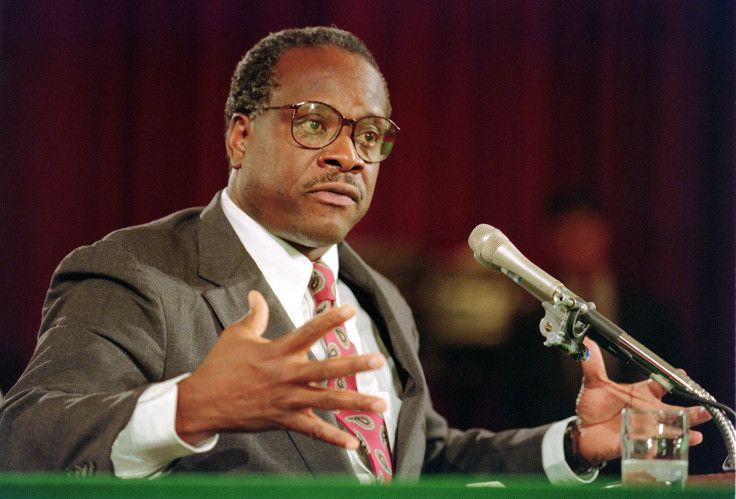Who Is Clarence Thomas? Three Fast Facts About The Justice Who Swore In Amy Coney Barrett
Supreme Court Justice Clarence Thomas swore in Amy Coney Barrett as the next justice on Monday. We know about Barrett, but what about Thomas?
Breaking the norm, Associate Justice Clarence Thomas swore in Barrett on Monday evening. Usually that honor would go to Supreme Court Justice John Roberts. Why was that?
First off, we know that Thomas, who is Black, and his wife, Virginia “Ginny” Thomas, who is white, are particularly close to the Trump White House. In early February, online news site Axios reported that Virginia was named to a panel formed to develop a “hit list” of Trump opponents. In May, Trump appointed her as a member of the Library of Congress Trust Fund Board.
Second, we know the associate justice is not without his own share of scandals. His confirmation hearings in 1991 were overshadowed by allegations of sexual harassment by Anita Hill, then a law school professor at the University of Oklahoma. Hill and the associate justice worked together at the Department of Education and then later at the Equal Employment Opportunity Commission.
National Public Radio broke the story on Hill. In 2010, NPR revealed never-before-heard conversations from Virginia that were seen as critical of Hill. The justice himself called the accusations a “high-tech lynching for uppity blacks.” Virginia, for her part, left a message for Hill at the time asking for her to apologize. Hill responded by saying that it was inappropriate to ask for an apology “without suggesting that I did something wrong, and that is offensive.”
Finally, the associate justice himself is known for his conservative record on the high court. The Georgia native rarely asks questions during oral arguments before the court, but is a consistent supporter of conservative opinions.
Oyez, a website from Cornell University meant to make the Supreme Court more accessible to the general public, described Justice Thomas as tilting heavily toward the right.
“His reputation of conservativism guides their predictions,” a profile read. “He has shown his opinions to lean farther right than any other justice on the bench today.”
Barrett’s confirmation solidifies a 6-3 majority for conservatives on the court.

© Copyright IBTimes 2025. All rights reserved.





















